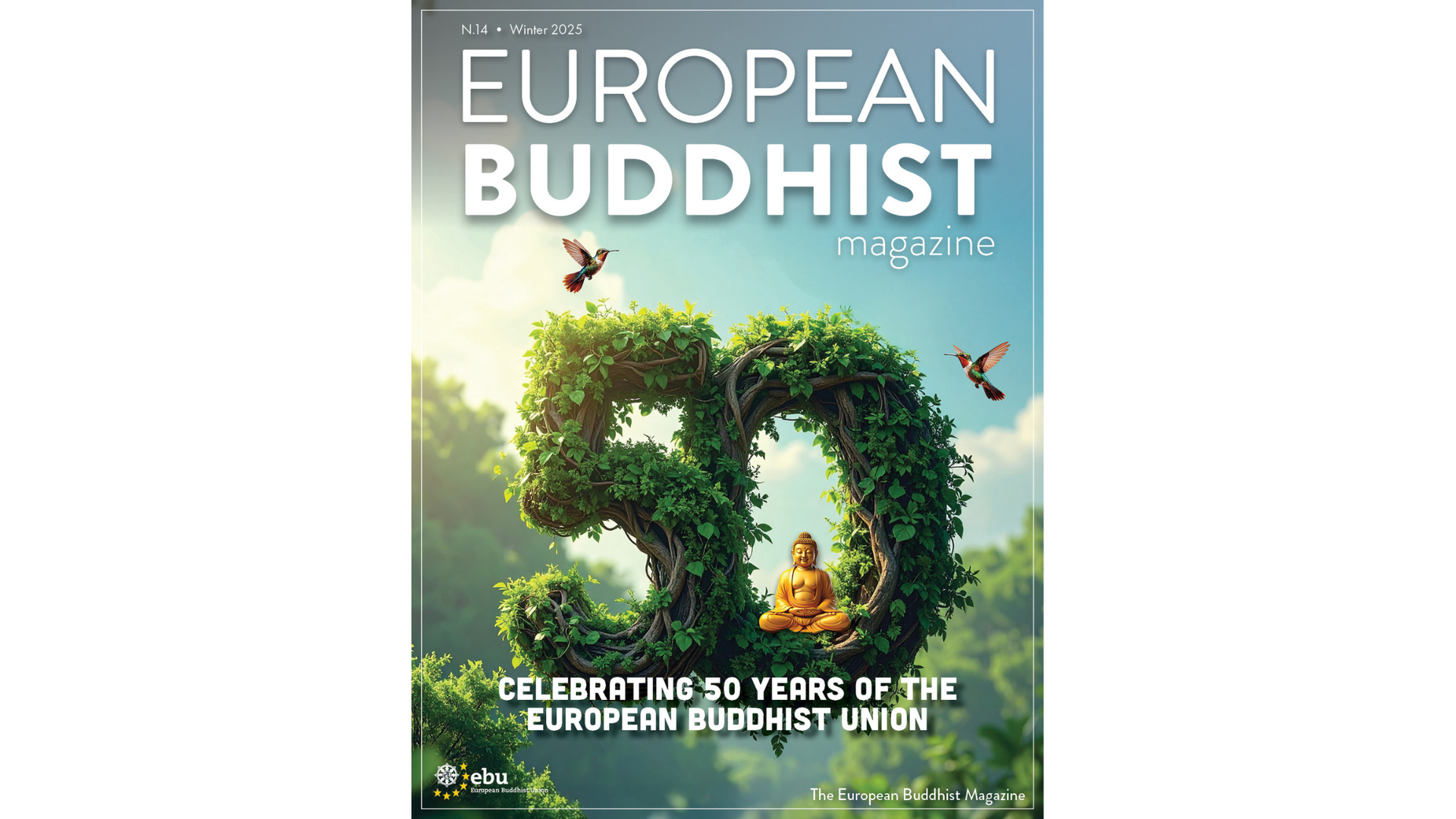CELEBRATING 50 YEARS OF THE EUROPEAN BUDDHIST UNION
This winter issue is dedicated to a very special milestone: the 50th anniversary of the European Buddhist Union. What better way to mark this moment than by revisiting the vibrant discussions held during the EBU Conference last spring in Vienna?
The conference not only celebrated the Union’s rich history—it also looked ahead. Centered around the theme of memory, renewal, and ethical responsibility, the event raised essential questions for our time:
How can European Buddhism relate to modernity?
What does it mean for Buddhism in Europe to be “engaged”?
Is a truly European Sangha possible?
You’ll find reflections and insights from these discussions throughout this issue. In her article The Middle Way in Modern Times: Rethinking European Buddhism (page 20), Iona Spataru—currently Head of the Austrian Buddhist Youth—offers a fresh perspective on how Buddhism is lived and shaped in Europe today.
Most of us weren’t there when the EBU was founded in 1975—but we are certainly living its legacy. We’re witnessing the fruits of seeds planted half a century ago. The founding vision was bold: to unite Buddhist organizations across Europe, foster spiritual friendship, promote social action grounded in Buddhist values, and represent Buddhism in dialogue with European institutions. These aims remain alive and vital today. And here’s a lovely detail that made me smile: those early EBU pioneers even dreamed of creating a European Buddhist Magazine—the very one you now hold in your hands.
Read more about this and other fascinating facts from our history in Michael Vermeulens article “A history of Buddhist voices articulated by Europeans”. UNDV stands for United Nations Day of Vesak. In her article “EBU at UND” Charlotta Segre takes us on a trip to Vietnam and introduces the UNDV 2025 celebrations, activities and academic sessions that were held in Vietnam last spring. And as usual we introduce the recent topics on EBU’s activities in our regular column “What has EBU been doing lately”?
Europe is richly diverse, and so is the EBU. It serves as a bridge between cultures, languages, and people. This is what we’re celebrating: connection, community, and the mutual path we walk together. We don’t only celebrate the past—we honor the living tradition that continues to unfold. What is still to come? Has a distinctly European form of Buddhism already taken shape?
Buddhism in Europe breathes and evolves with every step, staying true to the Buddha’s timeless wisdom— wisdom that remains as relevant today as ever. Thank you for being part of this journey. We hope this winter issue brings warmth, reflection, and inspiration to your days.
In gratitude,
Emilia Amala
Editor, European Buddhist Magazine
Each quarter the EBU publishes a magazine with articles, interviews and other content - mostly from Buddhists in Europe. The goal is to have an overarching medium which connects the vast Buddhist landscape of the European continent.
